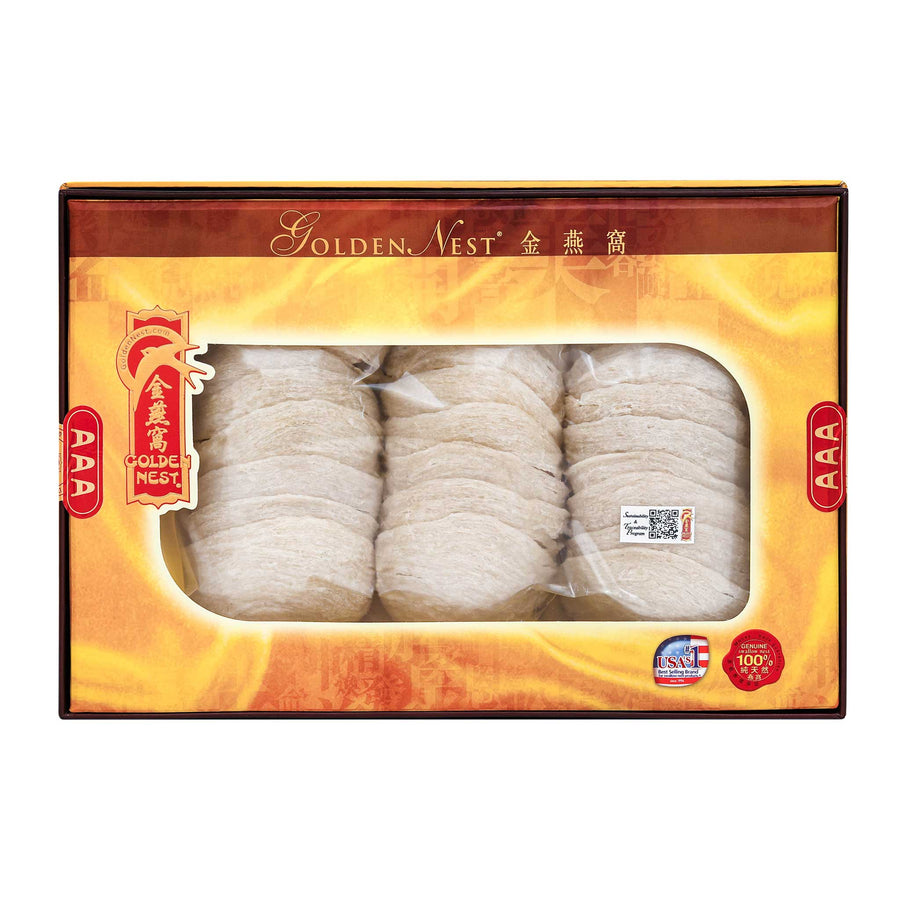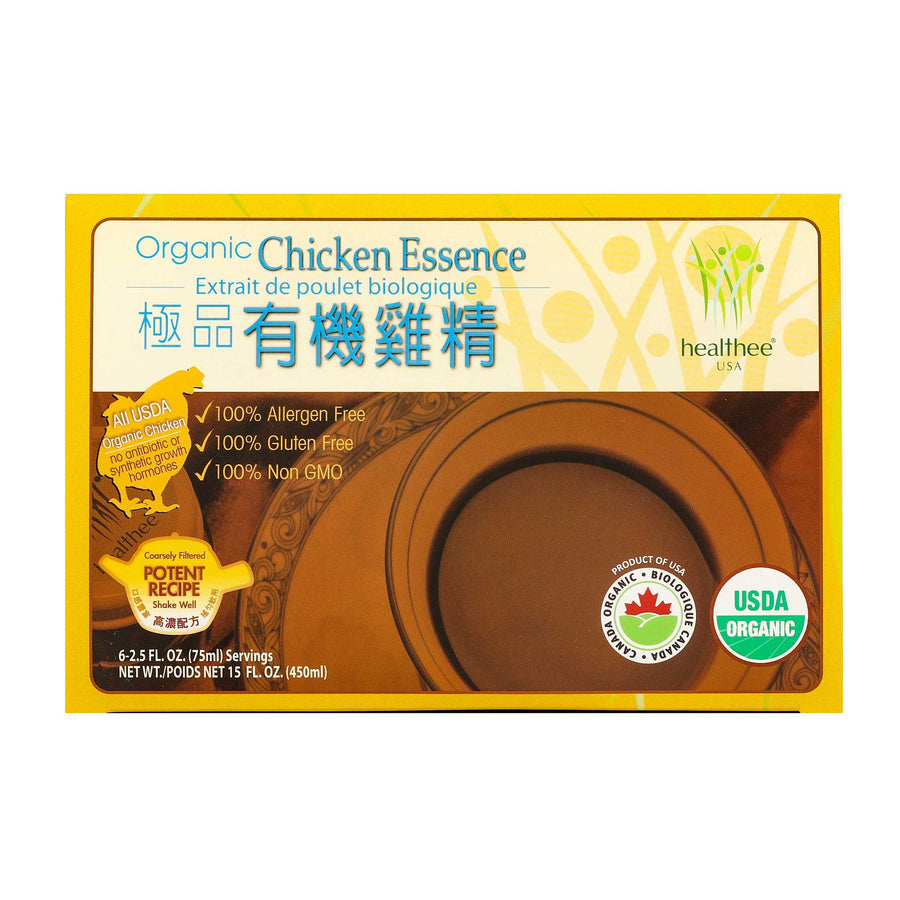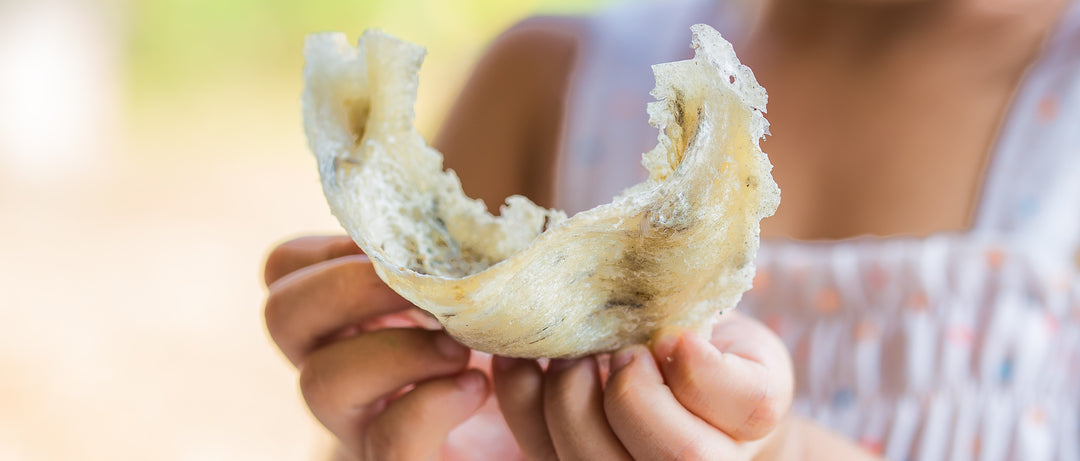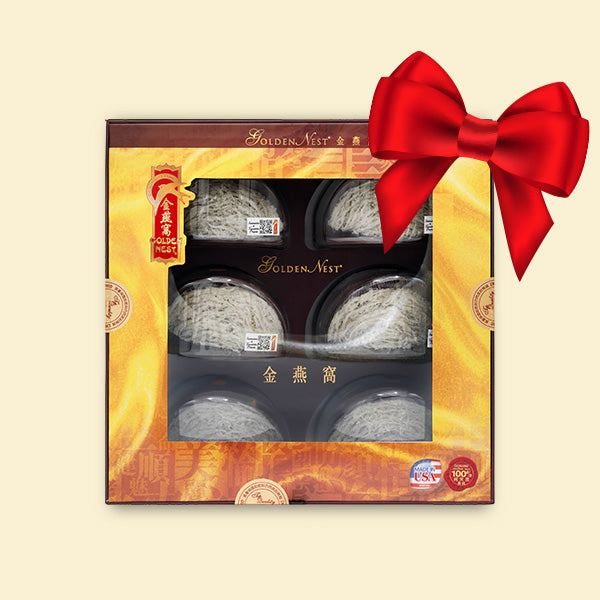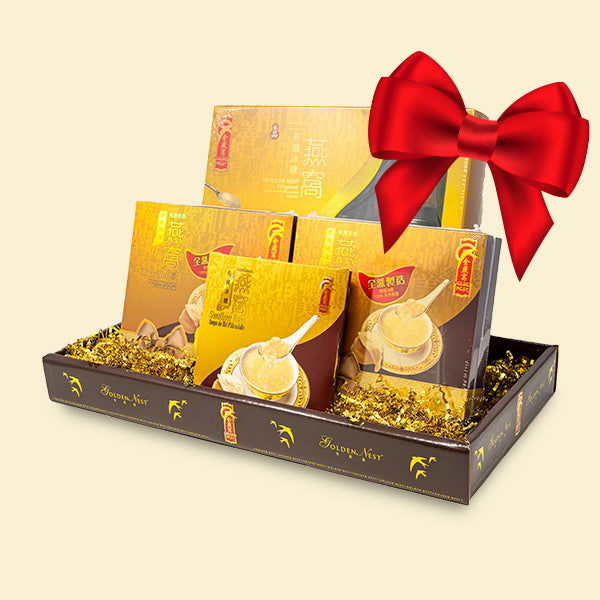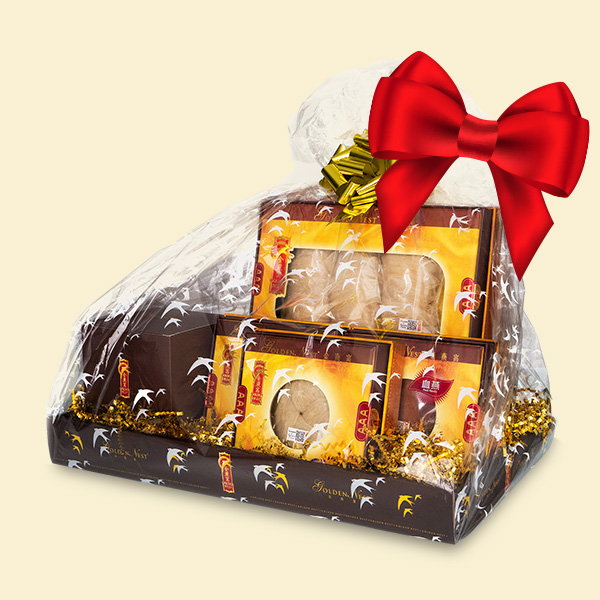The Do's And Don'ts Of Chinese New Year Gifts 2025
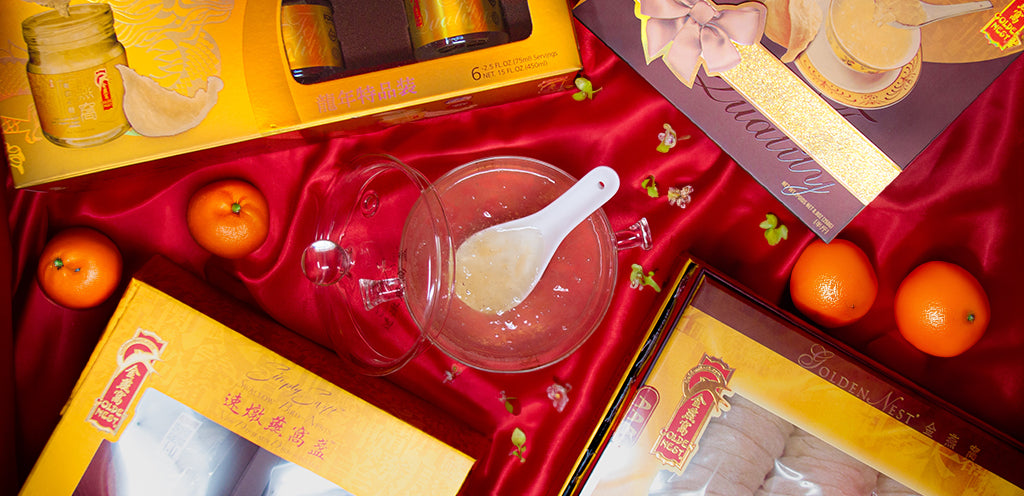
It’s Chinese New Year and your Asian partner has a surprise — an invitation to their parent’s house for dinner.
You’re nervous. You’ve never met their parents. You want to make a great first impression. As a polite guest, you decide to bring a gift. You hop on the internet to do some sleuthing on “Gift Giving in Chinese Culture.” Within minutes of scrolling through the search results, you quickly realize that gift giving in Chinese culture is a potential minefield of social faux pas and embarrassing misunderstandings. All of a sudden, finding that perfect gift seems overwhelming.

But fear not, finding a great gift for Chinese New Year (or any celebration) is doable. We recommend our edible bird's nests, which is sure to impress, but knowledge of tradition is needed too. Coupled with a keen sense of cultural sensitivity, bringing over that perfect gift for the holidays is a great way to impress those future Asian in-laws.
CHINESE GIFTS TO AVOID
While there are many rules to gift giving in Chinese culture, we made it easy and came up with a list of the main gifts to avoid based on proper Chinese gift-giving etiquette as well as the reasons why you should avoid them.
Gifts to Avoid Based On Cultural Significance and Language:

- Clocks or watches: In Mandarin, the saying "giving a clock" sounds exactly like "attending a funeral ritual." The Chinese associate clocks or watches with bad luck.
- Anything in quantities of 4: As mentioned above, the number four in Chinese sounds similar to the word for "death." The Chinese avoid displaying anything in quantities of four because it's considered unlucky. Moreover, any number with a four should be avoided - 14, 24, 34, etc. As some buildings exclude the thirteenth floor in the Western world, Chinese buildings sometimes exclude the fourth floor.
- Shoes: Another phonetically similar word in the Chinese language, the word for "shoes" sounds exactly like the word for "evil."
- Umbrellas: Umbrellas are negative in Chinese culture because the Chinese word sounds very similar to the word for "breaking up."
- The color green: The phrase 戴绿帽 (dài lǜ mào), which means “to wear a green hat,” translates to “a man’s wife is cheating on him.” Unless the plan is to start the evening with an awkward icebreaker, it’s best to stay away from the color green.
Gifts to Avoid Based On Superstitions:
- Mirrors: Mirrors are believed to attract malicious ghosts, and are never a good idea for a gift throughout most of Asia.
- Sharp objects: Giving items such as knives or scissors is not advised because it's believed to sever the relationship. A popular Chinese idiom translates to, "one slash, and it's in two parts," signifying the end of a relationship between two people.
- Dolls: Some Chinese people believe dolls attract evil spirits, and should not be brought into the house.
- Wallets: Giving a wallet symbolizes giving away all your money, signifying that you may lose all your prosperity.
Gifts to Avoid Based On Traditional Customs and Symbolism:

- Cut flowers: Since cut flowers are usually gifts presented at funerals, the receiver may not be pleased to receive them on Chinese New Year. More specifically, white flowers and yellow Chrysanthemums should be avoided altogether.
- Scented candles: Similarly to flowers, scented candles are associated with the dead.
- Black or white colored items: These two colors are traditionally used during funerals, and are also associated with death.
- Hats: During funerals, children wear mourning hats, making them taboo to gift them.
- Handkerchiefs: These are symbols of saying goodbye forever because handkerchiefs are given at the end of a funeral.
- Necklaces, ties, and belts: These gifts are seen as too intimate to gift to a friend, and can be confused as a sign that you wish for an intimate relationship with the recipient.
Generally speaking, Chinese people also won’t open gifts immediately in front of the giver. It’s not uncommon for them to accept the gift and set it aside (it’s considered impolite to open a gift immediately). Plus, if the gift isn’t well-received, that potential discomfort can be disclosed in private.
FINDING THAT PERFECT CHINESE NEW YEAR GIFT
Despite these cultural rules, there are plenty of options and strategies to utilize on that quest for the perfect gift this Chinese New Year. Generally speaking, if you’re not of Asian descent, the social rules surrounding gift giving will likely be less restrictive. However, a little cultural sensitivity can go a long way to achieving a great first impression.
Chinese Zodiac
Chinese zodiac years begin and end at Chinese New Year, which falls either in January or February. Each year is represented by a zodiac animal, and 2025 is a very special one—the year of the wooden snake. The festivities start on January 29, 2025, and continue until the Lantern Festival on February 12, 2025.
Since 2025 is the year of the wooden snake, gifts like edible bird's nest, symbolizing wisdom, resilience, and transformation, are especially meaningful.
Here are the 12 zodiac animals and their characteristics:
- Rat: clever, resourceful, quick-witted, and ambitious
- Ox: hardworking, dependable, and strong-willed
- Tiger: courageous, competitive, confident, and unpredictable
- Rabbit: quiet, gentle, compassionate, and responsible
- Dragon: powerful, enthusiastic, confident, and self-assured
- Snake: wise, enigmatic, intelligent, and sensual
- Horse: energetic, active, independent, and ambitious
- Goat: gentle, sympathetic, mild-mannered, and artistic
- Monkey: curious, intelligent, quick-witted, and versatile
- Rooster: observant, hardworking, confident, and ambitious
- Dog: loyal, honest, and dependable
- Pig: honest, compassionate, sincere, and good-natured
Handling the Ritual of Chinese Gift-Giving

First, there are some important rules of etiquette to uphold in the act of gift-giving. Remember to use both hands when presenting someone a gift (using both hands is seen as a sign of respect). Also, you might encounter a bit of resistance at first, which is perfectly normal. Remember, this isn’t a hard no or a sign of disrespect. In Chinese and many Asian cultures, initially declining a gift is a common courtesy. This initial resistance upon receiving is nothing more than a display of polite manners. Gently press on and they will accept the gift.
The Value of Special Cultural Gifts
A great gift idea is to bring something culturally unique or valuable from your background or hometown. It’s very common in Chinese and Asian culture to seek out the local specialties of an area during travels. Frequently, people who return from a business trip or a vacation abroad will bring back a special gift for their loved ones. And don’t be afraid to bring a gift that isn’t Chinese or Asian if it has special significance to your background. A unique cultural gift will be appreciated (for instance, something Western themed if you’re from Texas).
Get Creative with Your Gift Ideas
It can also be helpful to think unconventionally and creatively. The NBA is currently very popular in Asia (especially China and the Philippines) and something basketball related can potentially be a good gift. A souvenir from their favorite basketball team or the local NBA team are great ideas to consider.
Health and Food Products Are Always Good
Finally, health or food products remain excellent gift choices. Many Asians enjoy gifts that benefit one’s health, such as high end vitamins and supplements. This is especially relevant if the receivers are older and serious about their well-being. A traditional Chinese herb or reputable Western vitamins are great choices.
Bird Nests Are Ideal Gifts for Most Asian Cultures

For example, Golden Nest products are a perfect choice as a Chinese New Year gift. Traditionally an expensive banquet dish reserved for the emperor and other royalty, edible bird nests have remained popular choices at celebratory dinners like wedding banquets. Not only are bird nests instantly recognizable as high-end specialty items within Asia, they are also famous for their health benefits as an integral part of traditional Chinese medicine. Edible bird nest contains a water-soluble protein that stimulates cell division and muscle repair, which are all key elements to natural healing. These proteins also help bolster the immune system, since it accelerates the body’s ability to produce immune-system cells that fight diseases.
Sourcing is also very important to bird nests. Unfortunately, as the popularity of bird nests has increased, the amount of counterfeit products has also accelerated. Golden Nest products are impeccably sourced, earning A+ Accreditation with the Better Business Bureau.
As a bonus, bird nests are beloved by a diverse range of Asian cultures outside of China, including Vietnam, Thailand, Malaysia etc. Golden Nest products come in various amounts, variations and are an excellent choice for Chinese New Year.


